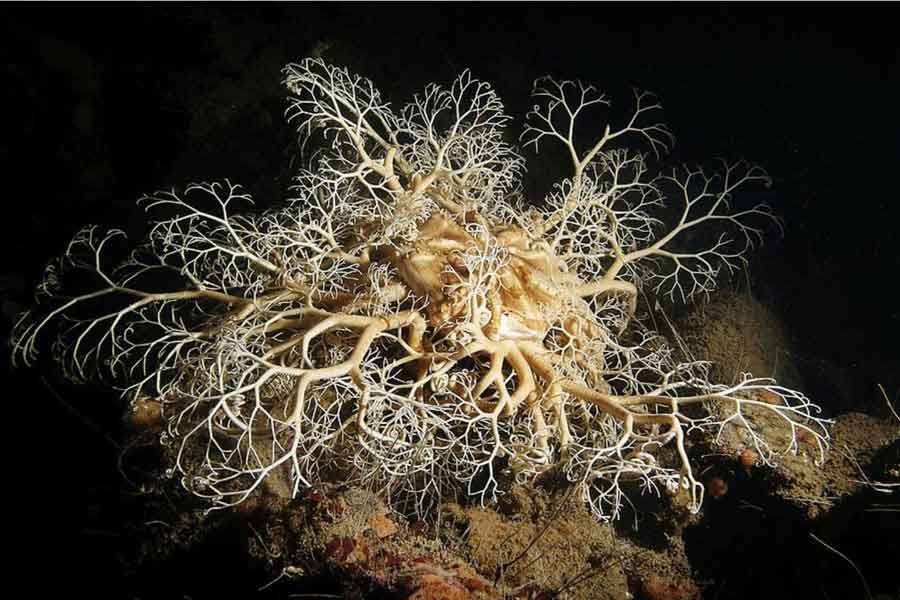
The first step towards survival consists of obtaining daily sustenance. In the sea, there are as many animal species as there are diverse ways of obtaining nourishment. It requires a spectacular strategy to succeed and avoid perishing from starvation.
Among the 2,000 known species of starfish today, there is one that surprises with its unparalleled beauty and originality when it comes to feeding. It is the «basket star,» undoubtedly a very unique animal.
This small starfish, with a body measuring ten centimeters in diameter and arms spanning thirty centimeters, spends the entire day hidden, with its arms retracted, among cracks on the seabed. When night falls, aided by its hundreds of tubular feet, the small starfish climbs onto the corals, reaching the highest branches. Once it reaches its chosen position, it extends its multibranch arms to their full length. As the arms extend upward, the tips of the arms join, touching each other, giving it the appearance of a beautiful basket.
These arms are actually a complex fishing net. The tips of the smaller branches have tiny sticky cilia that adhere to the microscopic plankton that comes into contact with them. As the night progresses, the cilia become filled with plankton, completing the intricate net’s catch. Once a small branch is saturated, the starfish transfers the food to grooves on its ventral side, which are covered in suction-cup-like feet, guiding it to the animal’s mouth, equipped with five jaws. When dawn arrives, the arms retract, and the starfish returns to its daytime hiding place, remaining motionless.
The amount of food captured is not substantial, but neither is the energy expenditure for the small animal. If the basket stars extended their net during the day, the trapped plankton would be stolen by small fish and crustaceans without the starfish being able to defend itself. That is why they only fish at night when these animals sleep and no one interrupts their work. At the tip of each arm, there is a small cushioned organ that possesses a set of simple eyes that cannot see like ours but can distinguish lights and shadows, enough to inform the primitive brain that it has become night or that dawn is approaching. Simple yet attentive eyes that are not deceived by the light of our flashlights.
The sea astonishes those who dive into it every day, with an incredible display of beauty and a variety of shapes and colors, granting us the undeserved privilege of resting on the seabed, observing a marvelous creature that has just transformed its body into a perfect fishing net, only to return to the surface amazed by what we commonly call «life.»
«You cannot defend what you do not love, and you cannot love what you do not know.»

